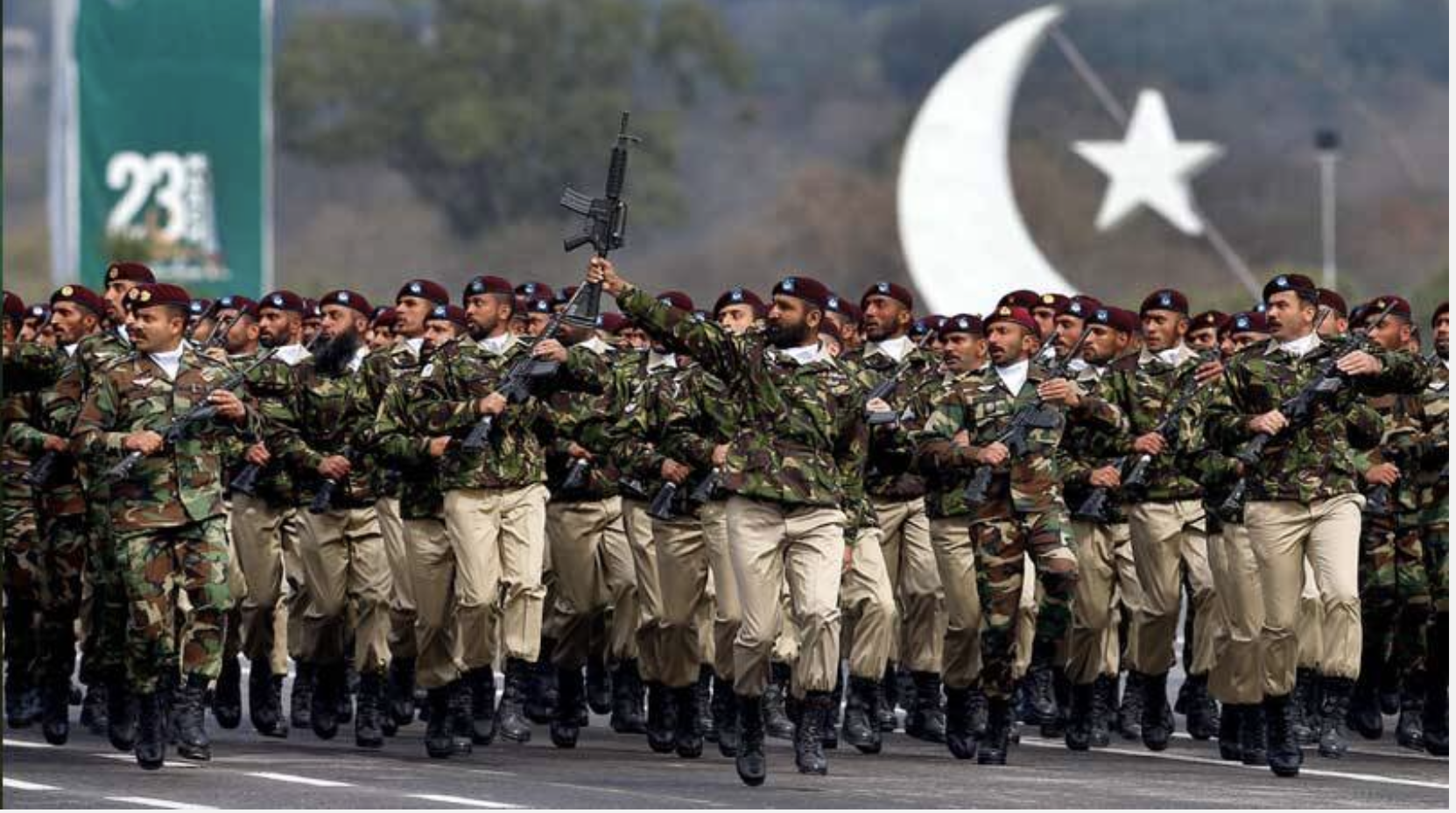Pakistan’s political crisis appeared to be one that could be solved through democratic means. But, a political crisis in Pakistan has often invited Rawalpindi to take over the affairs of Islamabad and establish the rule of the military all across the country.
Coups of Pakistan
If one looks at the history of Pakistan, it can be easily concluded that Pakistan is not averse or alien to coups. In 1953/54, the Governor-General Ghulam Mohammad dismissed the government of Prime Minister Khwaja Nizamuddin despite it enjoying the support of the; then in 1954, he dismissed the Constituent Assembly of Pakistan itself to prevent it from changing the constitution to restrict the Governor-General's powers. Then again in 1958, the first Pakistani President Major General Iskander Mirza dismissed the Constituent Assembly of Pakistan and the government of Prime Minister Feroz Khan Noon, appointing army commander-in-chief General Ayub Khan as the Chief Martial Law Administrator Thirteen days later, Mirza himself was exiled by Ayub Khan, who appointed himself president.
Almost two decades later, Operation Fair Play was launched. Operation Fair Play was the code name for the coup d’etat conducted at midnight on July 4, 1977, by the Pakistani military led by Chief of Army Staff General Zia ul Haq, against the government of then-Prime Minister Zulfikar Ali Bhutto. General Zia ordered the arrest of Bhutto, his ministers and other leaders of both the Pakistan People’s Party and the Pakistan National Alliance In a nationally televised address, General Zia announced that theNational Assembly of Pakistan and all provincial assemblies were dissolved and that the Constitution of Pakistan was suspended.
Under Zia's dictatorship, a heavy Islamisation of the country took place (the emblem of which was the Hudood Ordinances, which steered the country away from Muhammad Ali Jinnah’s non-sectarian vision. In October 1999 senior officers loyal to army chief Gen. Pervez Musharraf arrested prime minister Nawaz Sharif and his ministers after thwarting the Sharif regime's attempt to dismiss Musharraf and prevent his plane from landing in Pakistan as he returned from a visit to Sri Lanka.
Besides these direct and successful attempts, there have been a number of unsuccessful attempts and one indirect intervention as well, such as in 1951, 1980 and 1995.
Has the Perfect Storm Brewed?
The military has always had the upper hand over the civilian government in matters of how the country should be run, nuclear doctrine framed, and foreign policy nuanced. Whenever a prime minister became too powerful and popular, the military overthrew him in the name of saving the country.
Fresh in the popular mind is that Imran Khan’s rise to power in 2018 was aided by the military that wanted to experiment with a hybrid model: the prime minister would appear to be more in charge, and the generals would continue to pull the strings from behind the scenes but less directly.
Recently, former Pakistani Prime Minister Shahid Khaqan Abbasi has warned that Pakistan's economic and political turmoil is so dire that it has the potential to attract a military takeover even as he urged all stakeholders to initiate a dialogue to chart a way forward, media reports said on Sunday. Abbasi, a senior leader of the ruling Pakistan Muslim League-Nawaz (PML-N) party, served as the 21st prime minister of Pakistan from August 2017 to May 2018.
He said that martial law always remained a possibility if the system failed or when there was a conflict between institutions and the political leadership was unable to chart a way forward. Abbasi further added that Pakistan has had many long periods of martial law in very similar situations. In the same interview, Abbasi said "In fact, I would say Pakistan has never witnessed a [more] severe economic and political situation before. In much less severe circumstances, the military has taken over.”
Abbasi warned of anarchy if friction within the society and institutions became too deep, adding that such a situation could also see the powerful Army step in.
Relations between the civilian leadership and the military remain strained. However, it is to be seen whether GHQ overthrows the civilian leadership and establishes military supremacy all across or if Rawalpindi installs a leader in Islamabad who caters to its interests.
